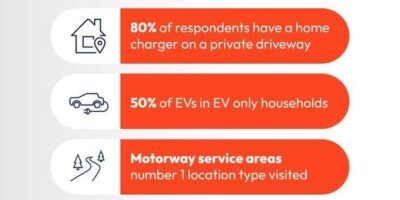Rush hour could be a thing of the past as commuters turn their backs on traditional working patterns in favour of more flexible and hybrid alternatives, according to the findings of a new study.
The poll conducted on behalf of vehicle subscription specialist Wagonex revealed most working age Brits want to work more flexibly in future, splitting their time between the office and working remotely.
This comes on the day the government reveals plans in its Good Work Plan for all employees to be able to request flexible working from the moment they start a new job. And it follows hot-on-the-heels of an Office for National Statistics (ONS) survey that found 85% of those currently homeworking would seek a hybrid of home and office working in future.
But mass flexible working comes with a downside…predicting how, when and where commuters will travel will become more difficult than ever before.
This could lead to an end to the UK’s well established rush hours (6am-9am and 4pm to 6.30pm), with traffic congestion on roads and passenger surges on rail and bus services happening unexpectedly at different times of the day and on different times of the week.
Toby Kernon, founder and CEO of Wagonex – the UK’s leading vehicle subscription specialist which aims to make car ownership more flexible and adaptable, said: “There are huge benefits to hybrid working. Individuals will be able to achieve a better work/life balance and businesses will have happier, more productive staff. With fewer people traveling to offices there could also be an environmental benefit and improvements in air quality.
“But one big downside is that life could well become even tougher for commuters. If employees can choose on which days they go to the office and have more flexibility in their working hours, it will become incredibly difficult to predict when and where travel peaks will occur.
“Commuters who drive to work may find they breeze into the office one day and then are stuck in tailbacks the next and those using public transport may be alone in carriages and on buses one day and packed in like sardines the next.â€
Conducted by Yonder, the Wagonex survey polled 1,000 working age Brits. It found:
Close to two-fifths (37%) of respondents expect to work or study remotely more often in the future compared to before the pandemic.
Younger respondents aged 18-24 (56%) and 25-34 (45%) are significantly more likely than the older age groups to expect to do so (35-44s 29%; 45-54s 32%; 55-64s 17%).
The wealthier abs (52%) and C1s (42%) are notably more likely to expect to work or study remotely more in the future compared to C2s (24%) and des (19%).
Respondents that work in the public sector (52%) are significantly more likely than those working in the private sector (38%) to prefer working/studying remotely more in the future.
Half of respondents (50%) expect to commute to and from work or their place of study primarily using their car.
Those employed in the public sector (62%) are more likely to expect to commute primarily using their car compared to those working in the private sector (50%).
To find out more about car subscription or to find your next car, visit wagonex.com now.
*Article Source http://www.wagonex.com








